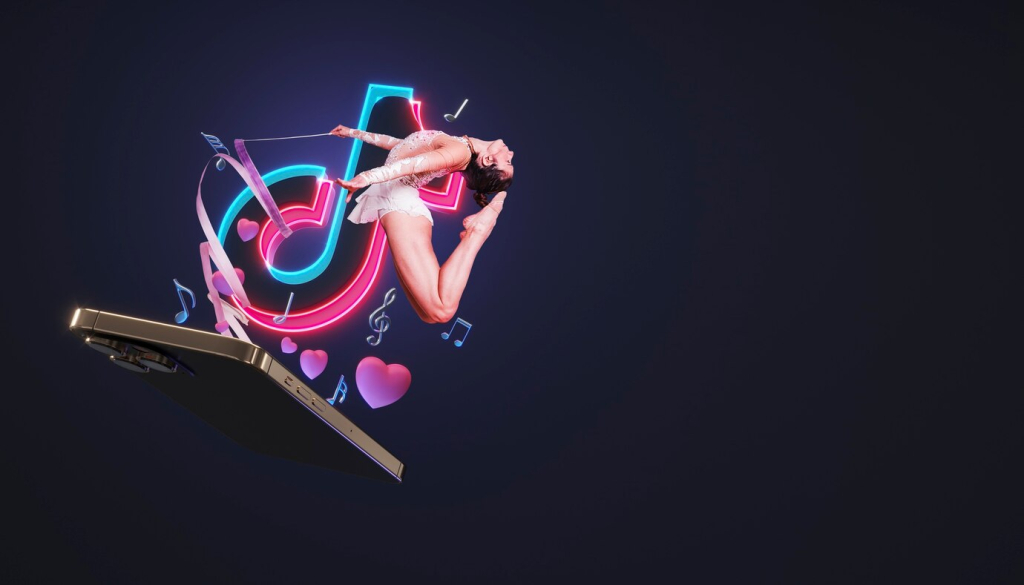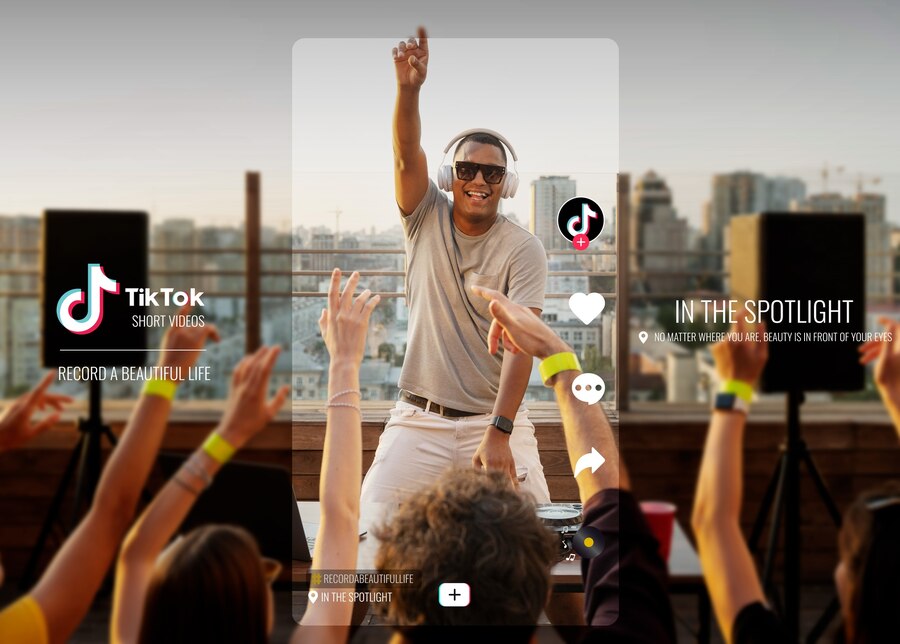
The impact of AI-generated TikTok audio has reverberated throughout the music industry, signaling a paradigm shift in how musical compositions are created and consumed. Universal Music Group and other major players are at the forefront of embracing artificial intelligence, recognizing its potential to revolutionize the landscape.
For the average TikTok user, AI-generated music opens up a world of creative possibilities, allowing them to explore innovative soundscapes for their content. This transformative trend also extends to platforms like Apple Music, where listeners are exposed to a diverse range of music crafted with the assistance of AI algorithms.
The fusion of artificial intelligence and musical compositions not only brings a fresh and dynamic perspective to the industry but also underscores the evolving relationship between technology and creativity, shaping the future of how we experience and engage with music.
Introduction: Impact of AI-generated TikTok audios to the Music Industry
The impact of AI-generated TikTok audio on the music industry has been revolutionary, reshaping how music is created, produced, and consumed. As a powerful tool for music producers and creators, AI has opened up new horizons for innovation within the music business.
The ability to seamlessly create music using artificial intelligence has streamlined the production process and expanded the scope of creativity. Music producers now have access to advanced tools that enable them to experiment with unique sounds and genres, pushing the boundaries of traditional music creation.
This transformative approach is not limited to the production studio; it extends to streaming services where users encounter a diverse array of music created with the assistance of AI algorithms. The integration of integrating audio into the music industry marks a significant shift, demonstrating the technology’s capacity to redefine how we approach and experience music in the digital age.
AI-generated music
AI-generated song and music stand as a groundbreaking force within the music industry and even major labels, reshaping the music creation and composition landscape. This innovative technology has transcended traditional boundaries, allowing for the generation of entirely new music and offering fresh perspectives on existing songs.
As musicians and creators delve into the possibilities of AI-generated compositions, the ability to play music takes on a new dimension, with unique and algorithmically crafted melodies captivating audiences. As record labels analyze data, they begin recognizing the potential of AI in fostering creativity and pushing artistic boundaries; this led for them to embrace this transformative approach.
AI-generated music is not merely a replication of existing tunes but an exploration of uncharted sonic territories, contributing to the emergence of a musical landscape where the lines between human creativity and artificial intelligence blur in the pursuit of novel and evocative musical experiences.

AI-generated content
AI-generated content, propelled by sophisticated AI algorithms, has become a transformative force in various creative fields, notably in the music industry. The emergence of AI-generated songs has showcased the potential of artificial intelligence to mimic and even innovate upon the distinctive qualities of human-generated music.
Notably, the recreation of legendary voices, such as the ethereal replication of John Lennon’s voice using AI, has opened new doors for cover songs and professional-grade music creation. The sound quality achieved through generative AI is remarkable, creating compositions that rival those produced by human artists.
This technology is not limited to imitating existing works. Still, it extends its reach to collaborating with other artists, fostering a dynamic exchange of ideas that pushes the boundaries of what is musically conceivable. AI-generated content has undeniably become a driving force, redefining the creative process and demonstrating its potential to reshape the future of artistic expression across various mediums.
AI tools
AI tools have become integral components in various creative domains, particularly impacting the music industry. As AI technology advances, the development of responsible AI tools is paramount, ensuring ethical considerations are prioritized in their application.
In the music industry, AI tools have given rise to innovative solutions, known as AI music tools, which have transformed the music creation process. These tools enable musicians and composers to explore new frontiers, experiment with unique sounds, and enhance the overall creative experience.
The responsible use of AI in developing music tools expands the possibilities for artistic expression and fosters a harmonious synergy between human creativity and technological innovation.
As the capabilities of AI continue to evolve, the responsible integration of AI tools in the music industry stands as a testament to the collaborative potential between humans and AI, pushing the boundaries of what is achievable in the world of music.
How is AI Technology Affecting the Music Industry?
AI technology is significantly impacting the music industry in various ways. One significant influence is in music creation, where AI algorithms are used to generate original compositions and even replicate the styles of renowned artists. This has streamlined the production process, offering musicians and producers new tools for innovation.
Additionally, AI transforms the listening experience through personalized recommendations on streaming platforms, enhancing user engagement. The technology is also being employed for tasks like sound engineering, improving efficiency in post-production.
Moreover, AI has facilitated data analytics for record labels, aiding in predicting trends and making informed business decisions. AI is reshaping how music is created, distributed, and consumed, marking a significant evolution in the music industry.
Universal Music Group’s Stance on AI in Music
While Universal Music Group (UMG) acknowledges the potential advantages of incorporating AI in music, they emphasize the importance of responsible use and ensuring fair compensation for artists, particularly on platforms like TikTok, where financial considerations are a significant concern. This ongoing debate is essential, as resolving these issues will undoubtedly influence the future landscape of the music industry, impacting both artists and platforms such as TikTok. The delicate balance between technological innovation and the rights of creators remains a critical aspect that will shape the industry’s trajectory in the coming years.
Key Takeaways
The repercussions of AI-generated TikTok audios echo across the music industry, indicating a transformative change in the creation and consumption of musical compositions. Leading entities like Universal Music Group are at the forefront, actively embracing artificial intelligence and acknowledging its potential to revolutionize the industry landscape.
The capacity to effortlessly produce music through artificial intelligence has simplified the production process and broadened the horizons of creativity. With access to advanced tools, music producers can now experiment with distinctive sounds and genres, pushing the limits of conventional music creation.
Furthermore, artificial intelligence has played a crucial role in facilitating data analytics for record labels, assisting in trend prediction, and enabling informed business decisions. In a broader context, AI is transforming the entire music creation, distribution, and consumption landscape, signifying a notable evolution in the music industry.

Celebrate Life’s Milestones in Camella!
Make unforgettable memories in a Camella home.
Our communities are designed to elevate your living experience.


